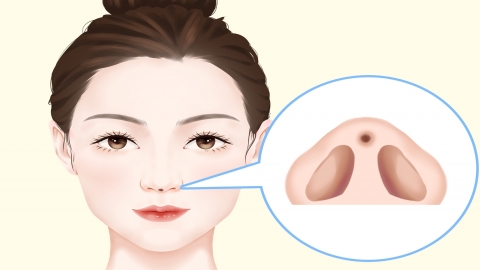On the fifth day after rhinoplasty, my face has reduced swelling, but my eyes are bruised. Why is this happening, and what should I do?
Generally speaking, "doing the nose" refers to undergoing rhinoplasty or nasal plastic surgery. After nasal plastic surgery, when facial swelling subsides, bruising around the eyes may appear, which could be related to factors such as淤血 (blood stasis) caused by surgical trauma, normal phenomena during the recovery of blood circulation, skin infection, subcutaneous hematoma, or rejection reactions. It is recommended to seek timely medical attention and adopt general treatments or medication therapy under the guidance of a physician. A detailed analysis is as follows:

1. Blood Stasis Caused by Surgical Trauma
During nasal plastic surgery, the blood vessels around the nose may be damaged to some extent, leading to localized bleeding and bruising. It is recommended to keep the wound clean and dry and avoid scratching with hands.
2. Normal Phenomenon During Blood Circulation Recovery
After surgery, local blood circulation needs to be re-established. During this process, temporary blood stasis and poor venous return may occur, causing purplish discoloration around the eyes. It is recommended to rest appropriately and avoid strenuous exercise to help restore blood circulation.
3. Skin Infection
Skin infection is usually caused by bacterial infection. Improper postoperative wound care may lead to bacterial infection, which affects the blood circulation around the eyes and causes bruising. It is typically accompanied by symptoms such as redness, swelling, fever, and localized pus. Treatment typically follows medical advice to use medications such as Amoxicillin Capsules, Cefixime Granules, or Roxithromycin Granules.
4. Subcutaneous Hematoma
Incomplete hemostasis during surgery or postoperative bleeding may lead to the formation of a hematoma under the skin. The hematoma might compress surrounding tissues, causing bruising around the eyes. This is generally accompanied by swelling and pain. Treatment may follow a physician's recommendation for medications such as Vitamin K1 Injection, Tranexamic Acid Injection, or Cefuroxime Axetil Tablets.
5. Rejection Reaction
A rejection reaction is typically triggered when foreign tissue is introduced into an immunologically active host. If the patient uses allogeneic materials such as silicone implants, the body may mount a rejection response against the implanted material, resulting in bruising around the eyes. Symptoms such as redness, pain, and itching of the skin may also occur. Treatment typically follows medical advice to use medications such as Prednisolone Acetate Injection, Dexamethasone Sodium Phosphate Injection, or Loratadine Capsules.
During the postoperative recovery period, it is recommended to strictly follow the physician's instructions for postoperative care, avoid strenuous physical activity and improper touching, which can aid in postoperative recovery.




